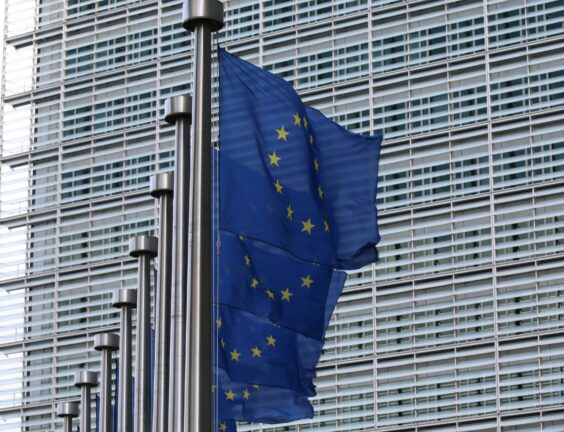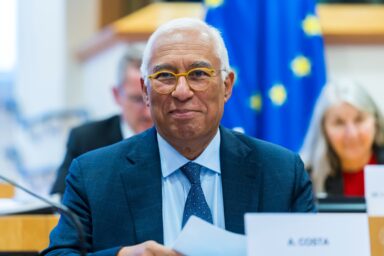Left-wing lawmakers are demanding that the EU’s new digital trade agreement with Singapore be reviewed by the EU’s top court, arguing that the deal breaches privacy rules and undermines the bloc’s ability to regulate its digital economy.
The Left, supported by the Greens, has gathered the necessary signatures to table a motion for a Court of Justice of the European Union’s opinion on the deal’s compatibility with EU law. According to the announcement by MEP Martin Schirdewan (The Left, DEU), the resolution will be put to a vote during the Parliament’s plenary session on 13 November.
The speed desired by the Commission must not take precedence over substance. – MEP Martin Schirdewan (The Left, DEU)
“An opinion from the Court of Justice of the European Union (CJEU) can ensure from the outset that the digital trade agreement with Singapore complies with the European Treaties, fundamental rights, and current legislation”, Schirdewan said. “I have serious doubts about this, which are also shared by trade unions and consumer protection organizations. The speed desired by the Commission must not take precedence over substance”, he added, accusing the Commission of rushing the deal without giving enough time for democratic scrutiny or legal assessment.
First EU digital trade agreement
The deal is the EU’s first standalone digital trade agreement, building on the 2019 EU–Singapore Free Trade Agreement. It establishes common rules for digital transactions. This applies to services, goods and public procurement enabled by electronic means. It includes digital activities such as telecommunication, computer and information services, and financial services.
The agreement also recognises the legal effect of electronic contracts and signatures, ensures the use of e-invoicing and single-window customs systems for goods traded electronically, and bans customs duties on electronic transmissions. By clarifying that documents made, signed and sent electronically have legal effect, the deal aims to make it easier for European and Singaporean businesses to trade online.
The Commission reported that digital services already accounted for more than half of EU–Singapore trade, about €43bn in 2022. The deal, they argue, will provide legal certainty for businesses. Besides, it should protect consumers and ensure that both parties can regulate their digital markets while facilitating trusted data flows between them.
You might be interested
Privacy and data flow concerns
Ms Itxaso Domínguez from European Digital Rights (EDRi) joined the press conference and also warned that the Commission is trying to “push all of these agreements and have them agreed in no time”. She argued that the provisions on data transfers leave “many opportunities for controllers, companies, or state actors, to actually increase surveillance when it comes to Singapore”.
Ms Domínguez also raised concerns about the source code clause. She refers to a clause which states that neither the EU nor Singapore can compel a company to disclose the source code of its software, simply as a condition for trading or providing services across borders. However, governments may request access to source code for legitimate public policy reasons.
“This happens with workers’ rights at the edge”, Ms Domínguez said. She recalled a case in which Italian authorities held a delivery platform accountable after reverse engineering an algorithm found to discriminate against workers. “This might not be able to happen with the source codes that we have if the company is based in Singapore”, she warned.
New opportunities unlocked: Commissioner Šefčovič
However, the Commission sees the agreement as a ’values-based’ digital trade framework. It argues that it ensures open, transparent, and competitive digital markets while maintaining a high level of privacy protection. In Commission’s view, both sides retain the right to adopt measures necessary to achieve legitimate public policy objectives.
I am confident it will bring tangible, lasting benefits to both people and businesses in Singapore and across the entire EU. – Maroš Šefčovič, Commissioner for Trade and Economic Security
Commissioner for Trade and Economic Security Maroš Šefčovič, who signed the deal in April, said it would connect “our digital economies and enabling trusted data flows, this agreement will unlock a wealth of new opportunities”. He described the agreement as “the first of its kind for the EU”. Mr Šefčovič also expressed confidence that the deal “will bring tangible, lasting benefits to both people and businesses in Singapore and across the entire EU”.











